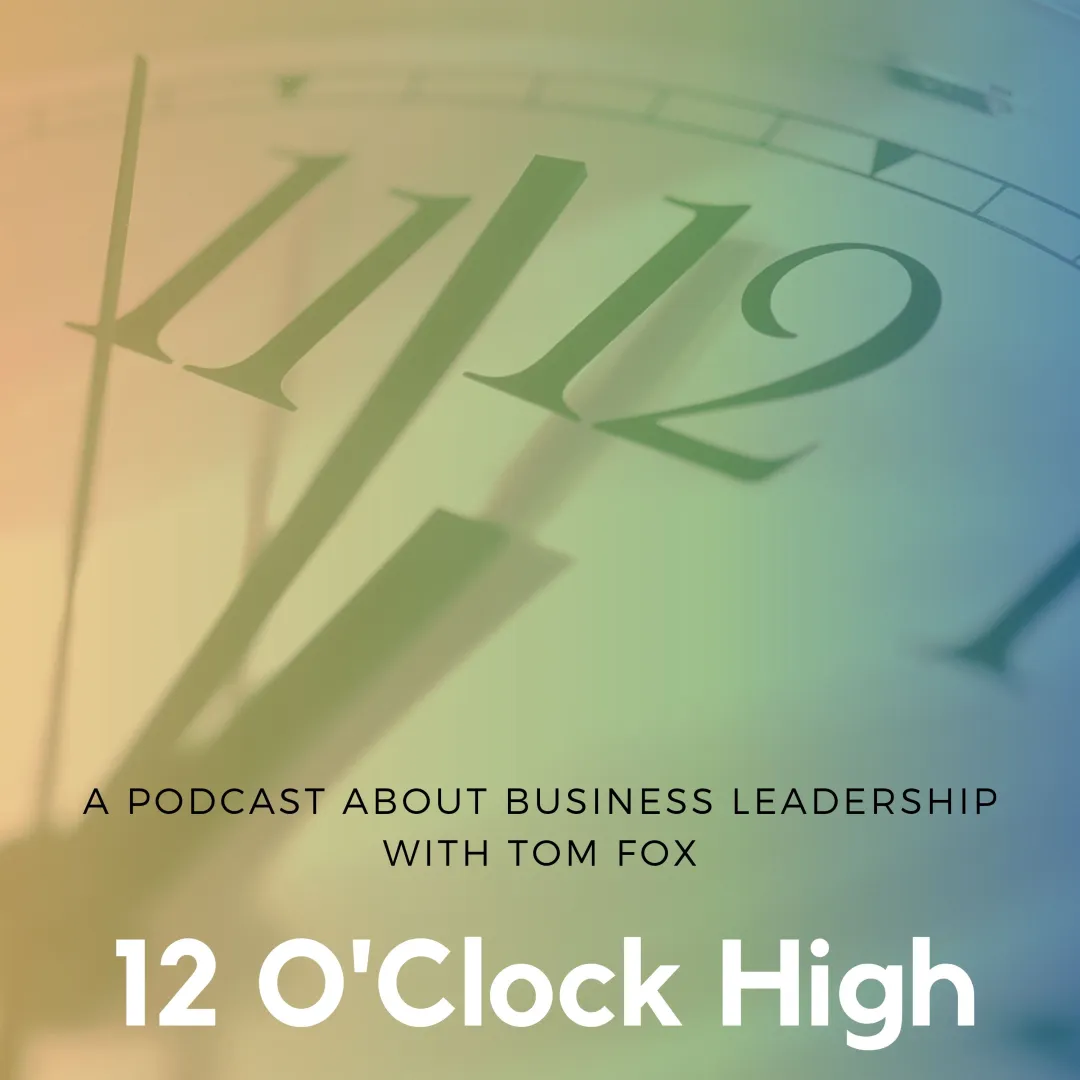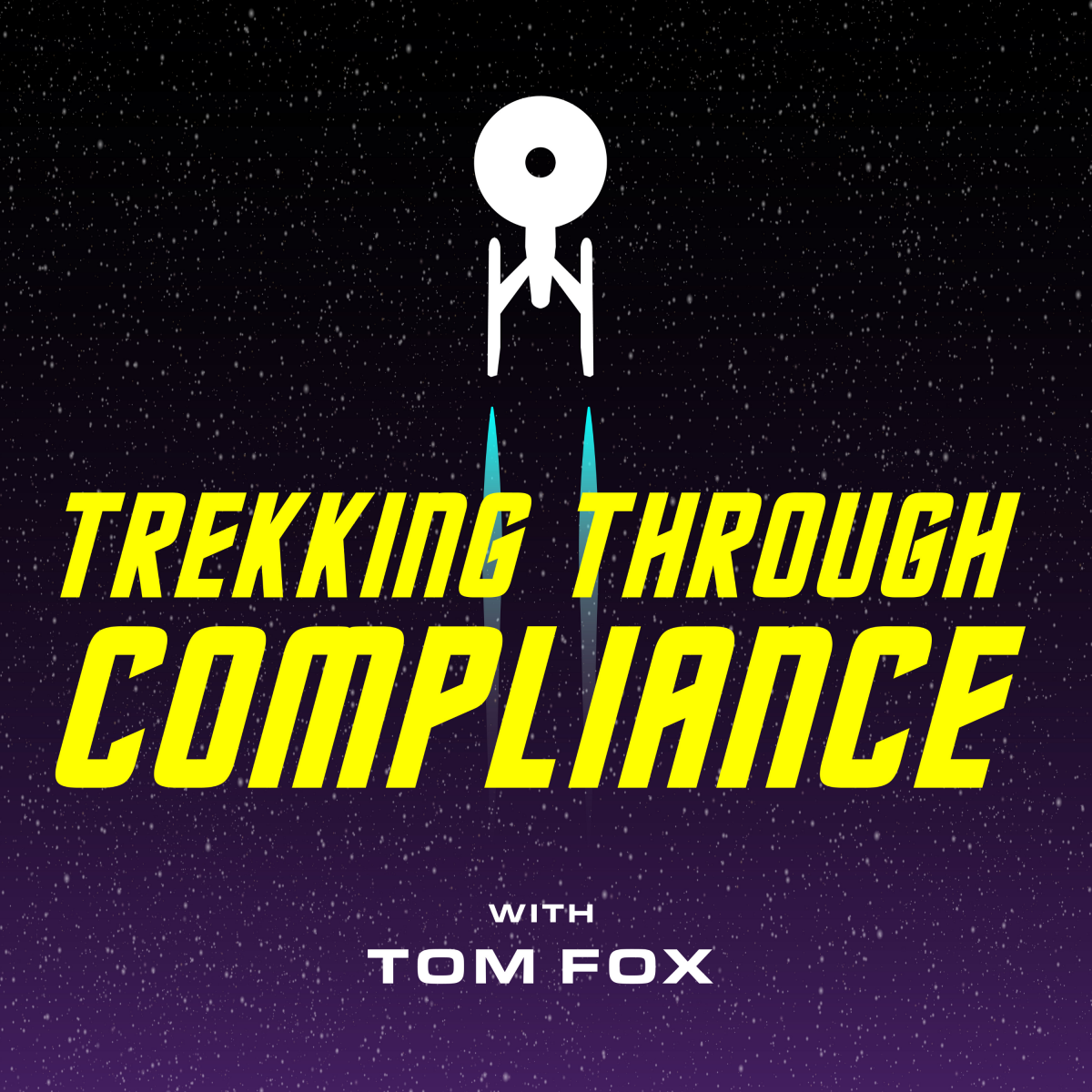 It took far too long but it is finally here. I am pleased to announce the premier of a new podcast on leadership. It is called 12 O’Clock High – A podcast on business leadership with Tom Fox. This podcast is hosted by Richard Lummis. I founded this new podcast because I have long been interested in the topic of leadership, a subject that was not, for generations, taught in law school. As a lawyer who worked in the legal department and gravitated to compliance, I saw a real need to bring the specific topic of leadership to those who want to move up to the Chief Compliance Officer (CCO) chair. This is even more relevant for the CCO or compliance practitioner than a corporate legal function because in that position you have to work with and through a wider variety of corporate disciplines than the usual in-house lawyer.
It took far too long but it is finally here. I am pleased to announce the premier of a new podcast on leadership. It is called 12 O’Clock High – A podcast on business leadership with Tom Fox. This podcast is hosted by Richard Lummis. I founded this new podcast because I have long been interested in the topic of leadership, a subject that was not, for generations, taught in law school. As a lawyer who worked in the legal department and gravitated to compliance, I saw a real need to bring the specific topic of leadership to those who want to move up to the Chief Compliance Officer (CCO) chair. This is even more relevant for the CCO or compliance practitioner than a corporate legal function because in that position you have to work with and through a wider variety of corporate disciplines than the usual in-house lawyer.
In researching this topic over the years, I have always been struck by the basic question of how one can strive to be a leader in business. Many in businesses think that if you are not born with the right leadership traits you can never successfully lead. The opposite is actually the truth. Leadership skills CAN be learnt, and in each episode we will explore the techniques of leadership, how to incorporate them into your own business strategy and help you become a more powerful leader in business. This podcast will help fill in skills.
Why the name 12 O’Clock High? It is because it is one of the most powerful movies about World War II (WWII), leadership and its effects on men I have ever seen. It starred Gregory Peck and was nominated for four Academy Awards, winning two Oscars. It was one of the first films about the war to focus on the human toll rather than on the military aspects of leadership during combat. I was drawn to the leadership skills demonstrated by the protagonist, General Frank Savage, played by Gregory Peck. Peck demonstrates a range of leadership skills as the Commanding Officer of the fictional 918th Bomber Group. He uses a range of leadership skills, such as tone from the top, influence, persuasion, self-sacrifice, listening and communicating, all to rebuild his unit. I was always fascinated by Peck’s portrayal and have wanted to use it as a guide for today’s leaders and to honor my father’s generation.
This podcast is a bit different from my other podcasts as I am being hosted by Richard Lummis. I asked Lummis to host because he has faced many of these issues in his business career. Like myself, he began his professional career as a lawyer but he later moved into the business side. He has run a series of companies ranging from energy concerns to recording studios. He had to learn many of the same lessons on leadership that I was required to learn in my corporate career. His experiences allow him to bring a unique and differing perspective to leadership and I hope you will enjoy his hosting this new podcast as much as I have in recording the episodes with him.
I begin this new podcast with three episodes up and available for your review. In Episode 1, I discuss the seven steps to greater influence better decision-making within an organization. Here Richard and I explore those steps, provide thinking behind how and what to do, and who is responsible for each. I challenge you to examine your own leadership skills and ask, as a leader, or aspiring leader, how do you compare against these steps?
In Episode 2, I discuss leadership lessons from running a family business. I take as my starting point an interview by Adam Bryant of Brooke Denihan Barrett about leadership lessons. She is the co-chief executive officer of the Denihan Hospitality Group, a 50-year old family business in the hospitality industry who has four key leadership principles. Through our dialogue Richard and I explain why her four lessons are important if you want to build a collaborative team.
In Episode 3, we discuss the psychology of persuasion. We use, as a staring point, the work of Robert Cialdini. In his book, “Influence: The Psychology of Persuasion”, he laid out what he believed to be six universal principals of persuasion that can be used to hone your leadership skills. Lummis and I use this work to explore those principals and provide feedback on how you can incorporate them into your leadership style going forward.
I plan to post a new podcast at noon on Tuesday of each subsequent week. Upcoming topics include the lessons that can be drawn from entrepreneurial leadership; how to conduct your first 100 days as a new business leader; the always difficult and tedious tasks of managing both meetings and talent; and we also explore the legacy of former Chesapeake Energy Chief Executive Officer (CEO) Aubrey McClendon who died in a car accident the day after he was indicted by a federal grand jury with conspiring to rig bids for oil and natural gas leases. We explore the allegations around McClendon’s conflicts of interest when he was CEO, the issue of reputation and leadership and what is CEO self-dealing.
As an added benefit I will show notes for each episode that you can use as a reference and benchmark for your own leadership journey. I hope you will go over and check out my newest podcast 12 O’Clock High – A podcast on business leadership with Tom Fox and that you get as much out of it as I have garnered researching, recording and producing it for you. The podcast is also available on iTunes and you can access by clicking here. So please go over to iTunes, take a listen and if you like what you hear rate this podcast in iTunes or better yet, leave a review.
[tweet_box design=”default” url=”http://wp.me/p6DnMo-2Ci” float=”none”]
A new podcast will give you insight into leadership in business-12 O’Clock High, a podcast on business leadership with Tom Fox.
[/tweet_box]
This publication contains general information only and is based on the experiences and research of the author. The author is not, by means of this publication, rendering business, legal advice, or other professional advice or services. This publication is not a substitute for such legal advice or services, nor should it be used as a basis for any decision or action that may affect your business. Before making any decision or taking any action that may affect your business, you should consult a qualified legal advisor. The author, his affiliates, and related entities shall not be responsible for any loss sustained by any person or entity that relies on this publication. The Author gives his permission to link, post, distribute, or reference this article for any lawful purpose, provided attribution is made to the author. The author can be reached at tfox@tfoxlaw.com.
© Thomas R. Fox, 2016
]]>



 It took far too long but it is finally here. I am pleased to announce the premier of a new podcast on leadership. It is called
It took far too long but it is finally here. I am pleased to announce the premier of a new podcast on leadership. It is called 



